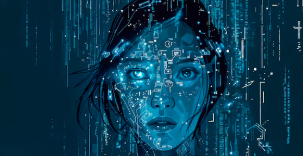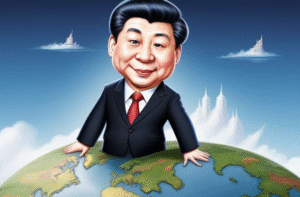$EROS
#AI #Ethics #ArtisticIntegrity #FilmIndustry #Technology #DirectorsRights #ArtificialIntelligence #IndianCinema #MovieNews #Controversy
Why Did Backlash Erupt After an AI-Altered Film Was Released Without the Director’s Consent? Discover What’s at Stake!
In the evolving landscape of Indian cinema, the use of artificial intelligence has sparked a significant controversy that highlights a crucial debate over creative rights and technological intervention. Recently, the renowned film studio Eros made headlines in Indian news by releasing a version of a 2013 movie with an AI-created ending, notably without the original director’s consent. This decision has ignited discussions on several fronts, concerning artistic integrity, the ethical use of AI in creative industries, and the implications for directorial control.
The Intersection of AI and Creative License
The integration of AI in the film production process raises profound questions about the future of creative direction. AI’s capability to alter cinematic endings or enhance film narratives offers exciting possibilities; however, it also introduces complex challenges regarding the original creators’ artistic vision. The case with Eros studio underscores a pivotal moment where technology and traditional filmmaking collide, setting a precedent for future projects within the industry.
Legal and Ethical Implications
This incident has not only led to an artistic dispute but also opened a Pandora’s box of legal and ethical issues. Filmmakers and creators are now questioning the security of their intellectual property rights in the age of digital reproduction and AI manipulation. The lack of consent from the original director in this instance highlights a significant oversight in respecting and preserving the artistic intentions that were initially envisioned.
Community and Industry Reaction
The backlash from the film community and wider public was swift and vocal. Industry professionals and audiences alike have expressed their concerns over the diminishing role of human creativity in filmmaking. This scenario serves as a critical examination of how AI might reshape the film industry, prompting stakeholders to reassess the balance between innovation and the preservation of traditional creative roles.
Looking Ahead: Navigating New Frontiers in Filmmaking
As we move forward, the film industry must navigate these new frontiers with a careful consideration of both the opportunities and risks associated with AI. Establishing clear guidelines and ethical standards will be essential in ensuring that the use of artificial intelligence supports the creative process without undermining it. Furthermore, fostering a dialogue between technologists and creative professionals will be crucial in harmonizing AI capabilities with artistic goals.
Conclusion: A Catalyst for Change
The unfolding debate around the AI-altered film release is a catalyst for change in the film industry. It compels a reevaluation of how emerging technologies should be integrated into creative practices. Ensuring that innovations such as AI enhance rather than replace human creativity will be paramount in maintaining the integrity and vibrancy of cinema. As we embrace these technologies, the industry must also safeguard the rights and visions of its creators to uphold the rich tapestry of storytelling that defines our cultural and artistic landscapes.
By addressing these issues head-on, the film industry can harness AI’s potential responsibly and creatively, paving the way for a future where technology and tradition coexist in harmony.











Comments are closed.